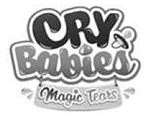Absence of Presence Does not Impede Protection
1 October 2024A new trace of practice has been noticeable on the horizon. Salitaco Ltd., a Russian company, filed a trademark application No 2022715392 for SORMEC. SORMEC is the name of an Italian company that manufactures equipment for maritime ships. This co-occurrence is hardly coincidental because the Russian company manufactures the same maritime equipment (https://salitaco.ru) and prefers to register the name of an Italian company as a trademark instead of its own.
The patent office rejected the application with the rationale that it was rather unusual for its practice. The Italian company does not have a trademark registration in Russia reproducing its name. The reason for the rejection was that the Italian company manufactures and sells equipment under its company name. The patent office believes that products manufactured by the Italian company are known to Russian consumers because sources show that there are proposals to sell the SORMEC equipment in Russia. So, awareness of the consumers about SORMEC products may elicit the impression that the relevant trademark, if registered, may mean that its owner is somehow associated with the Italian company or with a person connected with it.
Even more, using the disputable designation may be recognised as an act of unfair competition and abuse of rights because Russian consumers are too familiar with the designation SORMEC. This last is a hint to the applicant that if he uses the designation without registration all the same he will be under threat of being brought to trial because of unfair competition. Under these circumstances, the patent office concluded that the disputable designation may be confusing for consumers regarding the goods in Classes 9 and 12.
Expectably, the applicant appealed the decision and argued that the Italian company does not carry on any business activities, sell its goods under its name, or have a representative office in Russia. According to the applicant, the Italian company does business in Italy only and is not known to Russian consumers. Besides, foreign maritime equipment is forbidden for sale in Russia because of the current political situation.
The applicant’s appeal brought no result, and the applicant went to IP court. The court reviewed the details of the case and repeated in its judgment the conclusions of the patent office. It also recalled Article 1483(3/1/), according to which registration of a designation is not allowed if it may cause confusion in the eyes of the consumers. There is also Section 37 in the registration Rules, providing that when the examiner evaluates a designation, he should consider whether the designation is capable of confusing consumers concerning the goods or their manufacturer.
The court also put forward an interesting interpretation of what confusion may be: 1) confusion takes place if a specific designation is used in Russia and that designation is known to the Russian consumer, and 2) if a specific designation is not used in Russia it should be used on the territory of other countries in such a way that it should be known to the Russian consumer.
The court examined information on the Internet and agreed with the patent office’s conclusions that the Italian company’s business activities are confirmed. It found a link in Russian: https://www.nauticexpo.ru/prod/sormec/product-33882-454280.html, which leads to the site of the Italian company http://www.sormec.net. The goods manufactured by SORMEC are highly specialised, and its equipment is not massproduced; therefore, information on the equipment manufactured by SORMEC is targeted at consumers of relevant goods. This means that any person interested in shipbuilding may glean the information he needs and buy SORMEC’s products. The IP court also relied on a judgment of the Supreme Court (case No 300-ЭС18-18507), which confirmed that confusion in Russian consumers’ eyes may occur even if a company does not conduct its business in Russia. However, in this case, the designation should be known to consumers.
The result of the examination was that the IP court dismissed the applicant’s appeal and confirmed the patent office’s decision. It is interesting to note that the patent office’s decision and the IP court’s judgment (date: October 10, 2023, case No СИП-684/2023) were issued without the involvement of the Italian company, which may become familiar with the protection of its rights only from this article.
Quite recently (April 9, 2024), the IP court handed down a judgment on a different case, No СИП-799/2023. The details of the case are different from the case described above, but they also demonstrate a fresh approach of the IP court towards the use (or non-use) of a trademark.
An individual entrepreneur initiated a court action against IMC.TOYS, SOCIEDAD ANONIMA (Spain). The entrepreneur sought to cancel trademark No 727417  which is registered in Class 28. Class 28 includes a vast variety of toys and related articles. The entrepreneur wanted to cancel the trademark in relation to goods similar to toys from Class 28. He said the trademark was not used for similar goods for three years. He attacked the Spanish company because it had taken legal steps against him for his unlawful use of the trademark in his business.
which is registered in Class 28. Class 28 includes a vast variety of toys and related articles. The entrepreneur wanted to cancel the trademark in relation to goods similar to toys from Class 28. He said the trademark was not used for similar goods for three years. He attacked the Spanish company because it had taken legal steps against him for his unlawful use of the trademark in his business.
The court referred to Decree No 10 of the Supreme Court of April 2019 (Section 166), according to which, in case of examination of the circumstances of non-use of a trademark, if a trademark is used for individualisation of particular goods and if that trademark is famous in relation to those goods, registration of the trademark shall be maintained.
The Spanish company provided evidence of the use of some of the goods from the long list of goods in Class 28. The court recognised that the trademark was actively used for those goods and is famous for them. Given that the trademark was famous for part of the goods, the court ruled that legal protection of the trademark should also cover similar goods in Class 28.
From the above cases, it may be inferred that courts are quite flexible in examining circumstances of nonuse. However, the above should not be understood as implying that there is no need to register trademarks in Russia because particular circumstances may be different. The fact per se clearly shows that the government bodies dealing with IP do not take into account extraneous circumstances but are focused exclusively on the merits of relevant subject matters.
To access this website, we request that you read and accept the Terms of Use.










